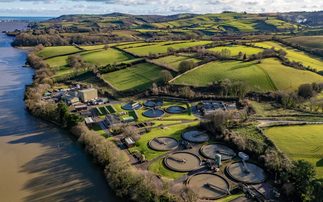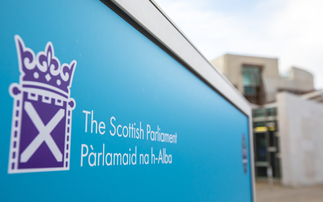As the UK waits to hear the outcome of its joint bid to host next years' COP26 climate summit, Centrica's head of environment James Rushen offers his view on the government's proposal to cut greenhouse gas emissions to net zero by 2050
I was incredibly encouraged at the recent BusinessGreen Leaders Briefing on 'Towards Net Zero Energy' to see the ambition for a net zero target receive widespread support across the energy sector.
Like Centrica's 2030 Responsible Business Ambitions (RBAs), net zero will be a challenging target to meet, but it is the right thing for the UK to aim for and, having written to the government in support of it, we are delighted they have taken a step towards this bold and necessary commitment.
Net zero doesn't mean we will eradicate all emissions, but it does mean significant disruption across all sectors, including power, heating and transport, and the need to ultimately offset any emissions we are unable to avoid, through emergent carbon capture and storage or negative emissions technology.
As a responsible company we want to play our part and have already committed through our RBAs to develop our own plans to achieve net zero by 2050. At this stage we don't know exactly what that path will be, but I am confident given the steps we have already taken to exceed our previous carbon targets - cutting our internal carbon footprint by 27 per cent between 2008 and 2015 - we will continue to make the reductions necessary to show leadership.
But our responsibility goes beyond our own emissions. Our customers' needs are changing, and they increasingly want more efficient and sustainable energy solutions. That is why we have also committed to help them reduce their emissions by 25 per cent by 2030, which is in line with the Paris Agreement goals.
How we do that is already at the heart of our strategy - the work we are doing in providing energy insights for both our home and business customers, enabling customers to optimise their energy use through our Hive products, and deploying low-carbon solutions like solar and electric vehicle charging, are all examples of how we're enabling the transition.
As individuals we also have a responsibility to think about how we are contributing. We all need to make changes to the way we consume energy, to how we travel and in our everyday lifestyle choices. Again, Centrica is innovating to make these cleaner choices easier and helping customers to transform the way they use energy to live, work and move
There's no denying we have made real progress in decarbonising the energy sector, but there is still a long way to go. Centrica is committed to a cleaner and greener energy future, and I am optimistic that we can all meet the challenge ahead as the solutions are feasible and can be affordable. All we need now is the collective will.
For more details about Centrica's Responsible Business Ambitions and how we're working to find ways to help our customers use energy more sustainably, decarbonise the energy system and reduce our own emissions, go to www.centrica.com/Ambition2030.
James Rushen is head of environment at Centrica.







